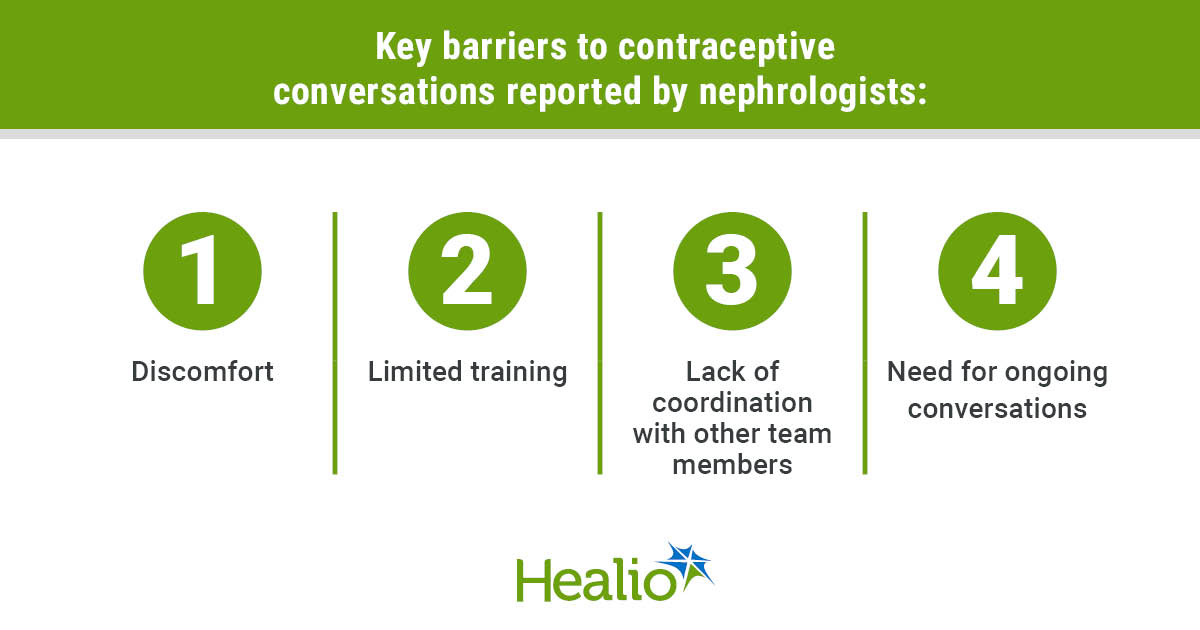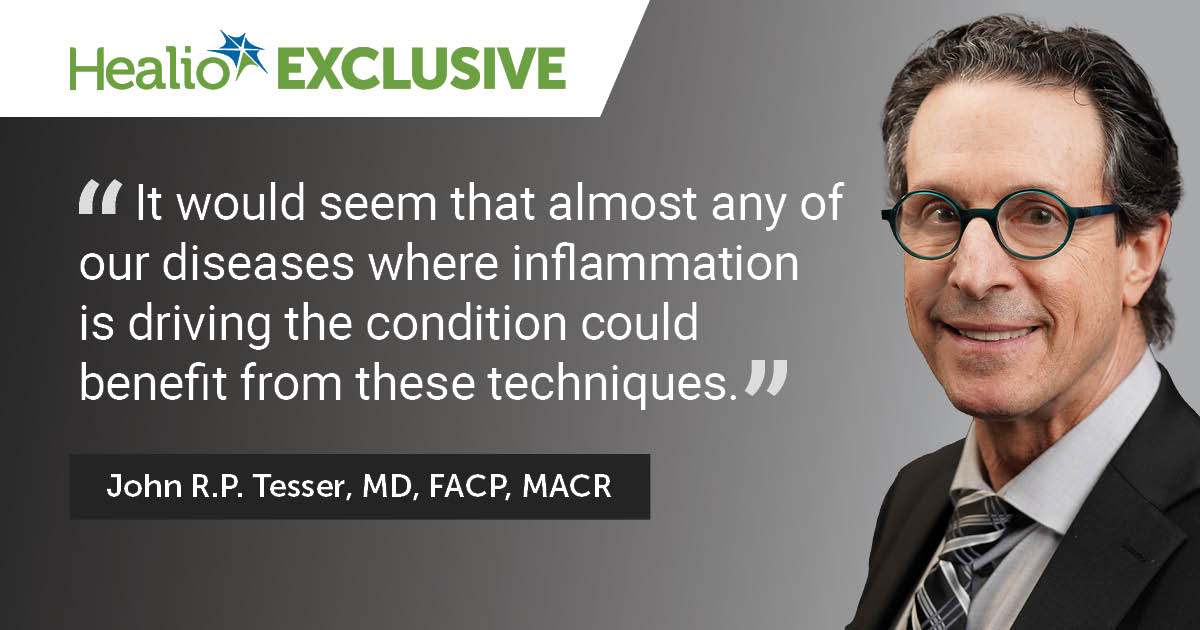November 06, 2025
1 min read
Key takeaways:
- Nephrologists reported they see importance of reproductive health but feel ill-equipped to discuss with patients.
- Discomfort, limited training and confusing guidance were among the key barriers to discussions.
HOUSTON — Discussions about contraceptive use for women with chronic kidney disease are often avoided by nephrologists, according to data presented at ASN Kidney Week.
Women with CKD have higher risk for adverse pregnancy outcomes, sexual dysfunction and menstrual irregularities, according to Rachael D. Nolan, PhD, associate professor at University of Cincinnati College of Medicine, and colleagues. Despite the risks being well established, conversations about contraceptive use are limited between nephrologists and their patients, with only 35% of nephrologists discussing fertility with their patients, the researchers said.

Data derived from Semaska N, et al. TH-PO1005. Presented at: ASN Kidney Week; Nov. 5-9, 2025; Houston.

Rachael D. Nolan
“Nephrologists recognize the importance of discussing reproductive health with women with kidney disease but often feel underprepared or constrained by time, resources and interprofessional coordination,” Nolan told Healio.
To better understand these communication barriers, the researchers conducted semistructured interviews with 25 U.S. nephrologists (median age, 40 years; 60% women) to identify themes across responses. More than three-quarters of respondents practiced in an academic setting, with a median of 7 years in practice since fellowship.
Four themes emerged across interviews. First, nephrologists expressed discomfort about discussing reproductive health, relying on their patients to mention contraceptive use.
Second, nephrologists said they felt that they had limited or insufficient training to guide contraceptive discussions.
Third, nephrologists cited a lack of interdisciplinary coordination to talk about contraceptive use with various team members.
“Many nephrologists expressed uncertainty about which clinician bears primary responsibility for initiating contraception discussions, leading to missed opportunities for counseling,” Nolan said.
Lastly, nephrologists highlighted the need for holistic and patient-centered care to support ongoing shared-decision making.
With these themes, the researchers said, limited training, unclear guidance and a reliance on patient initiation remain active barriers to contraceptive counseling.
“Our findings highlight a critical need for clearer clinical guidance, shared-care models and training to support informed, patient-centered conversations,” Nolan said. “Improving reproductive health outcomes for women with kidney disease requires not only provider education, but also structural changes, such as embedded reproductive counseling protocols and interdisciplinary collaboration between nephrology, obstetrics and primary care.”
For more information:
Rachel D. Nolan, PhD, can be reached at nephrology@healio.com.










